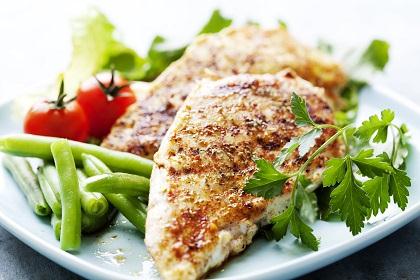
The GCC food services sector continues to expand rapidly on the back of flourishing economy, favourable demographics and steady rise in per capita income, indicates investment firm Al Masah Capital Ltd.
In 2014 the GCC foodservice market was valued at $18.8 billion and has been predicted to grow at CAGR of 6.8% to reach $24.5 billion in 2018. Saudi Arabia led the region, with total foodservice sales of $8.9 billion, accounting for nearly half of the GCC market. The UAE was the second largest contributor, with total sales of $5.3 billion generating 28% share in the region, followed by Kuwait at $1.9 billion, Qatar at $1.3 billion, Oman at $1.1 billion and Bahrain $0.4 billion.
Within the food services sector, fast food segment or quick service restaurants (QSR) has emerged as the largest, accounting for 58.2%, $10.9 billion, of the GCC food services market in 2014, followed by full service restaurant (FSR) at 31.5%, $5.9 billion, and café & bakery segment at 10.3%, 1.9 billion.
The FSR market – including fine and casual dining – is estimated at around $5.9 billion in 2014, nearly half of the QSR market. While the concept of fine dining is still confined to affluent class and has not grown drastically in the last few years, the casual dining segment observed growth with the entry of new brands almost every year. Whereas, chained and specialist coffee shops are growing in popularity. In 2014, the café & bakery segment registered an annual billing of $1.9 billion, exhibiting strong growth during 2012-14, growing at CAGR of 3.3%.
“Rising population is one of the key drivers of food consumption. The rising flow of tourists to GCC has helped drive demand further,” says Shailesh Dash, CEO Al Masah Capital. “As most major food services outlets are concentrated in the tier I and II cities of the GCC countries, the rapid growth in urbanised population is expected to act as a stimulus to the growth in the food service sector. Additionally we’ve annual food festivals, exhibitions and shopping festivals held in the region that provide a boost for growth. However, given the high dependence on imports, securing a steady supply of food remains a key challenge for the GCC governments. Several steps undertaken by regional governments to improve the food supply are still at a nascent stage and are likely to improve the situation in the long-term.”
Al Masah also reviewed factors affecting accelerated growth within the sector and stated an increase in competition, weak supply chain infrastructure, high rentals in prime commercial properties and shortage of skilled human capital as major issues. Whereas key emerging trends observed were changing consumer palates, influx of global F&B brands and growing demand for takeaway by way of mobile applications and online ordering. Investments and acquisitions were also indicative of a robust growth structure for this industry.
Further private equity (PE) activities in the foodservices industry gained momentum in the recent years. In January 2015, Saudi Arabia-based Bateel International – known for its gourmet quality dates with market presence in 16 countries across Africa, Europe, Asia and the Middle East – announced a partnership with L Capital Asia, an Asian PE fund sponsored by LVMH Moet Hennessy. In June 2015, Diamond Lifestyle Ltd, the F&B PE fund of Al Masah Capital announced the acquisition of the UAE-based Al Faris Restaurant, which operates the franchise of California-brand Johnny Rockets in the UAE, and holds the development rights in Oman.
A total of 15 PE deals took place in the GCC during 2010-15, while GCC F&B groups were involved in 10 deals during the same period. Al Masah reckons that owing to the burgeoning growth in the GCC foodservice sector, several investors have turned their focus towards the industry to bolster its core strengths by building onto established core brands. Notably, UAE was the most attractive destination within F&B groups, accounting for six of the ten deals during 2010-15.
In conclusion the reports states that according to IMF, GCC’s economy is estimated to reach $2 trillion by 2020, with Saudi Arabia contributing $902 billion, followed by the UAE accounting for $502 billion, Qatar contributing $269 billion, Kuwait at $196 billion, Oman at $81 billion and Bahrain at $40 billion.
Notifications